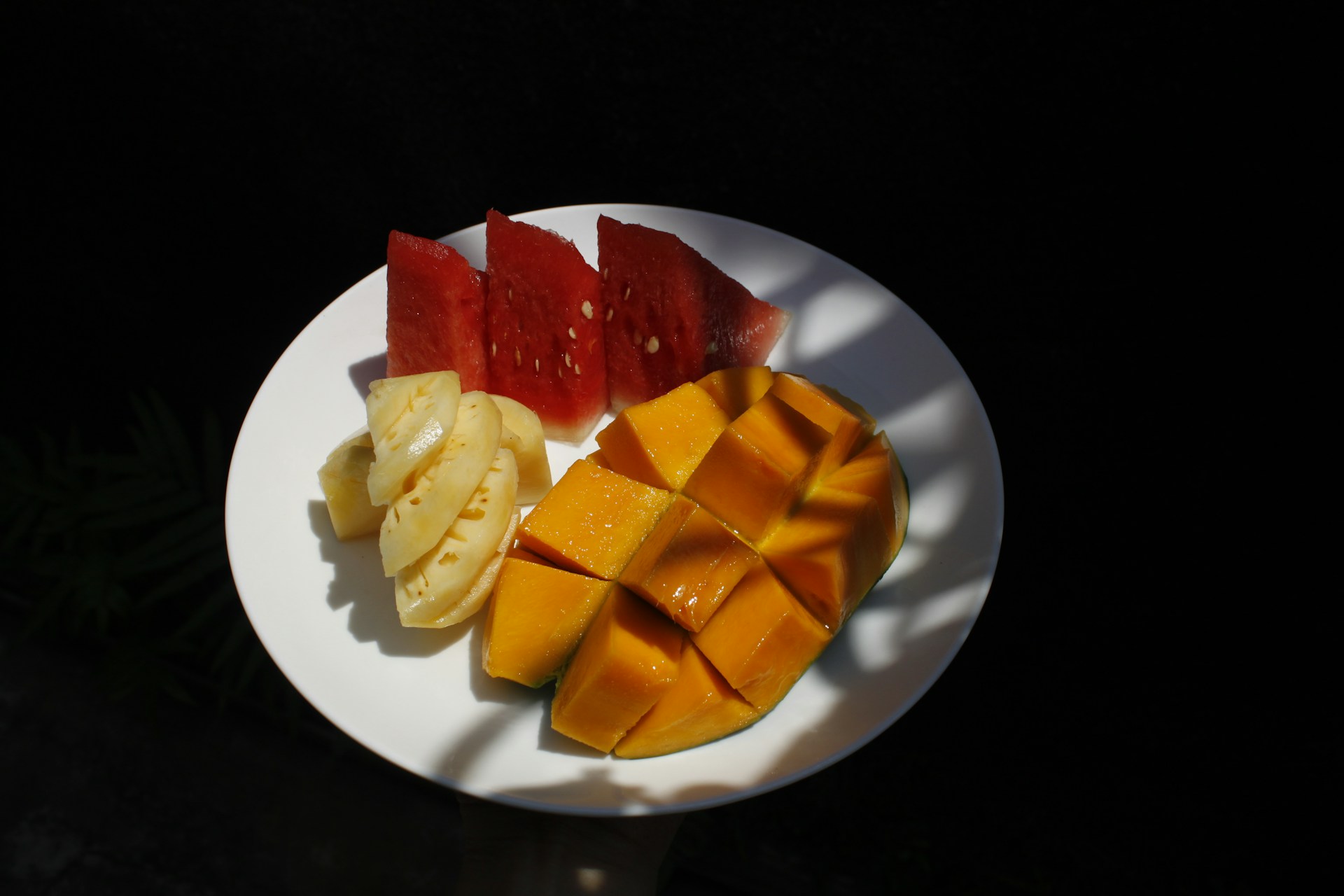Stunting Prevention through Exclusive Breastfeeding in Indonesia: A Meta-Analysis Approach
Pencegahan Stunting melalui Pemberian ASI Eksklusif di Indonesia: Pendekatan Meta-Analisis

Downloads
Background: The direct cause of stunting in toddlers is nutritional intake, one of which is because babies do not receive exclusive breastfeeding for up to 6 months.
Objectives: The purpose of this study is to measure the effect of exclusive breastfeeding on stunting prevention through a meta-analysis approach.
Methods: This study uses a meta-analysis approach by searching for research articles from various databases such as Google Scholar, PubMed, and Science Direct. The keywords used are by the Medical Subject Heading (MeSH), namely "exclusive breastfeeding", "stunting", "infant", "exclusive breastfeeding", "linear growth disorder", and "stunted toddlers". The criteria for the article are publications from 2013 to 2021, can be downloaded in full text, using a cross-sectional and case-control study design, and effect size data is available in the form of Odds Ratio (OR). The process of submitting articles is presented in a PRISMA diagram. Data analysis using the Review Manager 5.4.1 application with a random effect analysis model. Presentation results in the form of forest plots and funnel plots.
Discussions: 26 research articles are worthy of analysis, consisting of 9 from international journals and 17 from national journals. The Heterogeneity test results showed a p-value of 0.00001 and an I2 value of 85%. The results of the analysis with a random effect model were obtained from the forest plot which showed a pooled Odds Ratio of 2.90 (95% CI: 2.07-4.08), meaning that babies who did not receive exclusive breastfeeding had a 2.9 times higher risk of stunting compared to babies who received exclusive breastfeeding. These findings show a significant influence of non-exclusive breastfeeding on the incidence of stunting (p-value 0.0001 < 0.05).
Conclusions: Exclusive breastfeeding can effectively prevent stunting.
Hendrawati & Rakhmawati. Feeding Practices pada anak usia 0-24 bulan sebagai upaya pencegahan stunting. J. Keperawatan 13, 151–166 (2021).
Mills, E. J. et al. Interventions to improve linear growth during exclusive breastfeeding life-stage for children aged 0-6 months living in low- and middle-income countries: A systematic review with network and pairwise meta-analyses. Gates Open Res. 3, (2020).
Fauzan, P., Manyulu, N. & Kawengia, S. Hubungan air susu ibu (ASI) eksklusif dengan kejadian stunting pada baduta di Kota Manado. Biomedik 7, (2019).
Apriana, R. & Bekti. Hubungan antara pola pemberian ASI dengan perkembangan motorik kasar pada batita di Posyandu RW III Desa Boja Kecamatan Boja Kabupaten Kendal. J. Ners WIdya Husada 2, 61–67 (2018).
Dharel, D., Dhungana, R., Basnet, S., Gautam, S. & Dhungana, A. Breastfeeding practices within the first six months of age in mid-western and eastern regions of Nepal : a health facility-based cross-sectional study. BMC Pregnancy Childbirth 0, 1–9 (2020).
Fadlliyyah, U. R. Determinan faktor yang berpengaruh pada pemberian ASI eksklusif di Indonesia. Ikesma 15, 51 (2019).
Saputri, R. A. & Tumangger, J. Hulu-Hilir Penanggulangan Stunting di Indonesia. J. Polit. Issues 1, 1–9 (2019).
Kemenkes RI. Survei Status Gizi 2007 - 2020. Kementerian Kesehatan RI (Kementrian Kesehatan Republik Indonesia, 2021).
Kemenkes RI. Buku Saku Hasil Survei Status Gizi Indonesia (SSGI) 2022. Kemenkes (Kementrian Kesehatan Republik Indonesia, 2023).
Kementerian Sekretariat Negara RI. Peraturan Presiden Republik Indonesia Nomor 72 Tahun 2021 tentang Percepatan Penurunan Stunting. Kementerian Sekretariat Negara RI 1–23 (2021).
Hafizuddin, M. & Che, B. Hasil Studi Status Gizi Indonesia (SSGI) Tingkat Nasional,Provinsi dan Kabupaten/Kota Tahun 2021. 25, 1–23 (2021).
Savita, R. & Amelia, F. Hubungan Pekerjaan Ibu, Jenis Kelamin, dan Pemberian Asi Eklusif Terhadap Kejadian Stunting Pada Balita 6-59 Bulan di Bangka Selatan. J. Kesehat. Poltekkes Kemenkes RI Pangkalpinang 8, 6–13 (2020).
Walters, C. N., Rakotomanana, H., Komakech, J. J. & Stoecker, B. J. Maternal determinants of optimal breastfeeding and complementary feeding and their association with child undernutrition in Malawi (2015-2016). BMC Public Health 19, 1–12 (2019).
Okinarum, G. Y. Failure of Exclusive Breastfeeding and Inadequate Frequency of Complementary Feeding as Predictors of Stunting. J. Media Keperawatan (2021) doi:10.26714/mki.4.3.2021.182-190.
Tasya Aureliyana & Raden Kince Sakinah. The Relationship between Exclusive Breastfeeding and The Incidence of Stunting Toddlers in Cemara Wetan Village, Indramayu Regency. J. Ris. Kedokt. 2, 67–72 (2022).
Barir, B., Murti, B. & Pamungkasari, E. P. The Associations between Exclusive Breastfeeding, Complementary Feeding, and the Risk of Stunting in Children Under Five Years of Age: A Path Analysis Evidence from Jombang East Java. J. Matern. Child Heal. 4, 486–498 (2019).
Ekholuenetale, M., Okonji, O. C., Nzoputam, C. I. & Barrow, A. Inequalities in the prevalence of stunting, anemia and exclusive breastfeeding among African children. BMC Pediatr. 22, 1–14 (2022).
Sugiyanto, J., Raharjo, S. S. & Dewi, Y. L. R. The Effects of Exclusive Breastfeeding and Contextual Factor of Village on Stunting in Bontang, East Kalimantan, Indonesia. J. Epidemiol. Public Heal. 4, 222–233 (2019).
Lestari, E. D., Hasanah, F. & Nugroho, N. A. Correlation between non-exclusive breastfeeding and low birth weight to stunting in children. Paediatr. Indonesia. 58, 223–127 (2018).
Suwartini, I., Hati, F. S. & Paramashanti, B. A. Riwayat Asi Eksklusif dan Stunting pada Anak Usia 24-59 Bulan di Kecamatan Pajangan dan Pleret, Kabupaten Bantul. Media Gizi Pangan Univ. Alma Ata 27, 37–43 (2020).
Nursyamsiyah, Sobrie, Y. & Sakti, B. Faktor-Faktor yang Berhubungan dengan Kejadian Stunting pada Anak Usia 1 – 24 Bula24-59 bulan. Syntax Lit. ; J. Ilm. Indones. 4, 611–622 (2021).
Awwalin, J. & Munir, Z. Literatur Review: Pengaruh Asi Ekslusif Terhadap Kejadian Stunting Pada Balita. J. Keperawatan Prof. 11, 1–30 (2023).
Sulistyoningsih, H. The Relationship between Parity and Exclusive Breastfeeding with Stunting in Toddlers (Literature Review). in Proceedings of the National Seminar on Health ‘The Role of Health Workers in Reducing Stunting’ 1–8 (2020).
Jezua, E. M., Silitonga, H. T. H. & Rambung, E. Asi Eksklusif, Status Imunisasi, Dan Kejadian Stunting Di Indonesia : Studi Literatur. Prominentia Med. J. 2, 17–26 (2021).
Saputri, A. D. & Fahrudin, S. K. M. A. Literature Review Hubungan Pemberian Asi Eksklusif Terhadap Kejadian Stunting Pada Balita Usia 24-59 Bulan. http://eprints.ums.ac.id/id/eprint/106263%0Ahttp://eprints.ums.ac.id/106263/9/Naskah Publikasi.pdf (2022).
Rambitan, W., Purba, R. B. & Kapantow, N. H. Stunting pada Anak Batita di Wilayah Kerja Puskesmas Kawangkowan. 167, (2014).
Nugraheni, D., Nuryanto, N., Panunggal, B. & Syauqy, A. ASI Eksklusif Dan Asupan Energi Berhubungan Dengan Kejadian Stunting Pada Usia 6 – 24 Bulan Di Jawa Tengah. J. Nutr. Coll. 26, 70–73 (2014).
Widyasari, R. & Putri, C. A. Hubungan Pemberian Asi Eksklusif, Penyakit Infeksi Dan Tingkat Pengetahuan Ibu Tentang Gizi dengan Kejadian Stunting pada Balita Usia 12-36 Bulan di Wilayah Kerja Puskesmas Kecamatan Baiturrahman Banda Aceh. J. Healthc. Technol. Med. 4, 437–444 (2018).
Anita sampe, rindani toban, M. anung. Relationship between Exclusive Breastfeeding and Stunting in Toddlers. J. Ilm. Kesehat. Sandi Husada 11, 448–455 (2020).
Raudlatul, A. W. & Linna, D. S. Hubungan Pemberian ASI Eksklusif dengan Kejadian Stunting pada Bayi Usia 6-24 Bulan di Wilayah Kerja Puskesmas Selo Kabupaten Boyolali. in Seminar Nasional Kesehatan 13–18 (2019).
Permadi, R., Hanim, D., Kurnandar & Indarto, D. Risiko inisiasi menyusu dini dan praktek ASI eksklusif. J. Penelit. Gizi dan Makanan 63, 9–14 (2017).
Angelina F, C., Humairoh & Aji Perdana, A. Faktor kejadian stunting balita usia 6-23 bulan di provinsi Lampung. J. Dunia Kesmas 7, 212–14 (2018).
Khoiriyah, H., Pertiwi, F. & Prastia, T. Faktor-Faktor yang Berhubungan Dengan Kejadian Stunting pada Balita Usia 24-59 Bulan di Desa Bantargadung Kabupaten Sukabumi Tahun 2019. Promot. J. Mhs. Kesehat. Masy. 4, 145–160 (2021).
Ni’mah, K. & Nadhirah, S. R. Faktor yang berhubungan dengan kejadian stunting pada Bbalita. Wind. Public Heal. J. 10, 416–425 (2021).
Bogale, B., Gutema, B. T. & Chisha, Y. Prevalence of Stunting and Its Associated Factors among Children of 6-59 Months in Arba Minch Health and Demographic Surveillance Site (HDSS), Southern Ethiopia: A Community-Based Cross-Sectional Study. J. Environ. Public Health 2020, 9520973 (2020).
Suwartini, I., Hati, F. S. & Paramashanti, B. A. Riwayat Asi Eksklusif dan Stunting pada Anak Usia 24-59. J. Media Gizi Pangan 27, 37–43 (2020).
Kragel, E. A., Merz, A., Flood, D. M. N. & Haven, K. E. Risk Factors for Stunting in Children under the Age of 5 in Rural Guatemalan Highlands. Ann. Glob. Heal. 86, 8 (2020).
Lassi, Z. S., Rind, F., Irfan, O., Hadi, R. & Das, J. K. Impact of Infant and Young Child Feeding (IYCF) Nutrition Interventions on Breastfeeding Practices, Growth and Mortality in Low- and Middle-Income Countries: Systematic Review. Nutrients 12, 1–21 (2020).
Erza, D. M. Meta-Analisis Determinan Stunting Pada Anak Usia Dibawah 5 Tahun di Asia. Hum. Care J. 5, 993–999 (2020).
Hadi, H. et al. Exclusive breastfeeding protects young children from stunting in a low‐income population: A study from eastern Indonesia. Nutrients 13, 1–14 (2021).
Copyright (c) 2024 Amerta Nutrition

This work is licensed under a Creative Commons Attribution-ShareAlike 4.0 International License.
AMERTA NUTR by Unair is licensed under a Creative Commons Attribution-ShareAlike 4.0 International License.
1. The journal allows the author to hold the copyright of the article without restrictions.
2. The journal allows the author(s) to retain publishing rights without restrictions
3. The legal formal aspect of journal publication accessibility refers to Creative Commons Attribution Share-Alike (CC BY-SA).
4. The Creative Commons Attribution Share-Alike (CC BY-SA) license allows re-distribution and re-use of a licensed work on the conditions that the creator is appropriately credited and that any derivative work is made available under "the same, similar or a compatible license”. Other than the conditions mentioned above, the editorial board is not responsible for copyright violation.












































